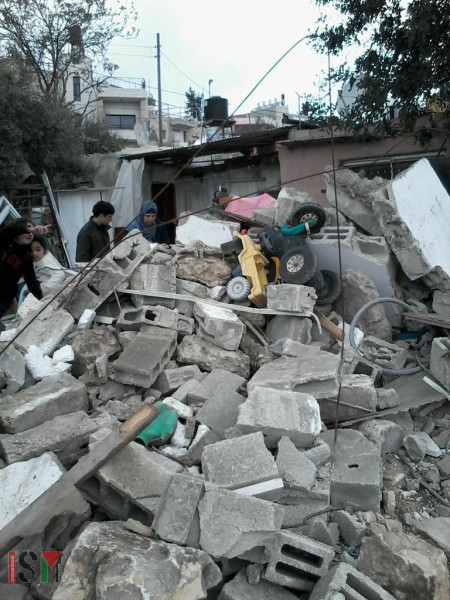Tag: House Demolition
-
Home demolition in Beit Hanina forces family to move into Shuafat Refugee Camp, East Jerusalem
10th February 2016 | International Solidarity Movement, Ramallah Team | East Jerusalem, occupied Palestine Yesterday evening, we went to visit 55 year old widow, Kifaya Rishek, after her home in Beit Hanina, occupied East Jerusalem, was demolished on the 27th of January. After losing her house in Beit Hanina, where she lived together with…
-
Jerusalem family threatened with demolition order
8th February 2016 | International Solidarity Movement, al-Quds team | Jerusalem, occupied Palestine Israeli authorities on 2nd February 2016 issued a demolition order for the fence and gate surrounding the Amro family’s home in Wadi al-Joz in occupied East Jerusalem. The family was given 48 hours to remove the fence and gate before an imminent…
-
Three new homes will be demolished in Jerusalem
7th February 2016 | International Solidarity Movement, Ramallah Team | South Jerusalem, occupied Palestine Yesterday, on Saturday February 6th, we visited the house of 49 year old, Salah Abukaf, who lives in the neighborhood of Sur Baher in occupied South Jerusalem, and two days ago received a house demolition order. Last year, on September…



